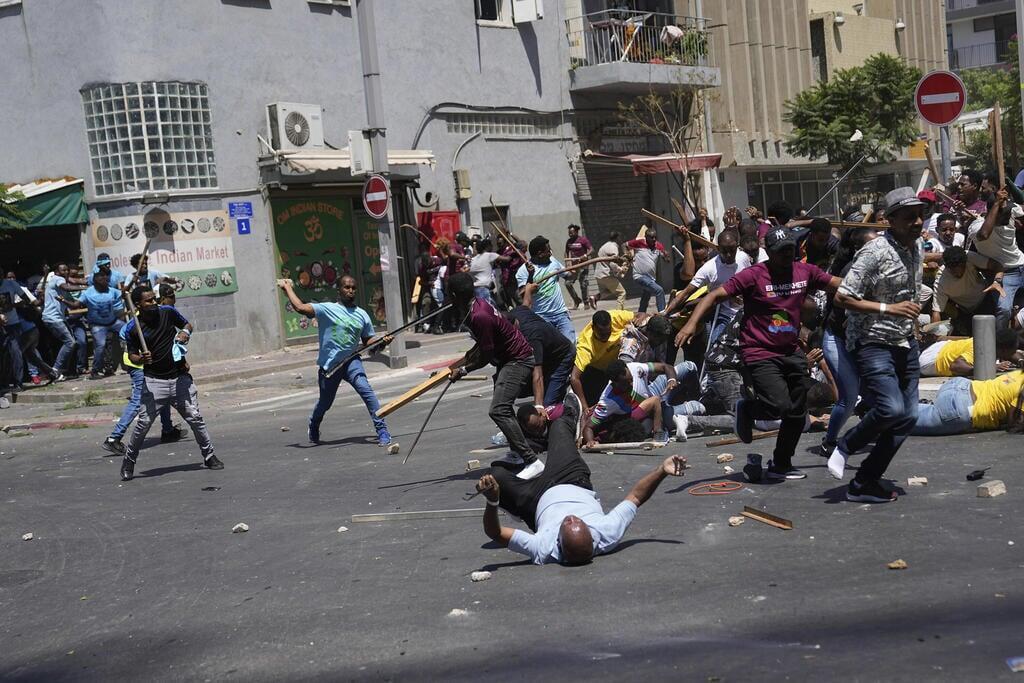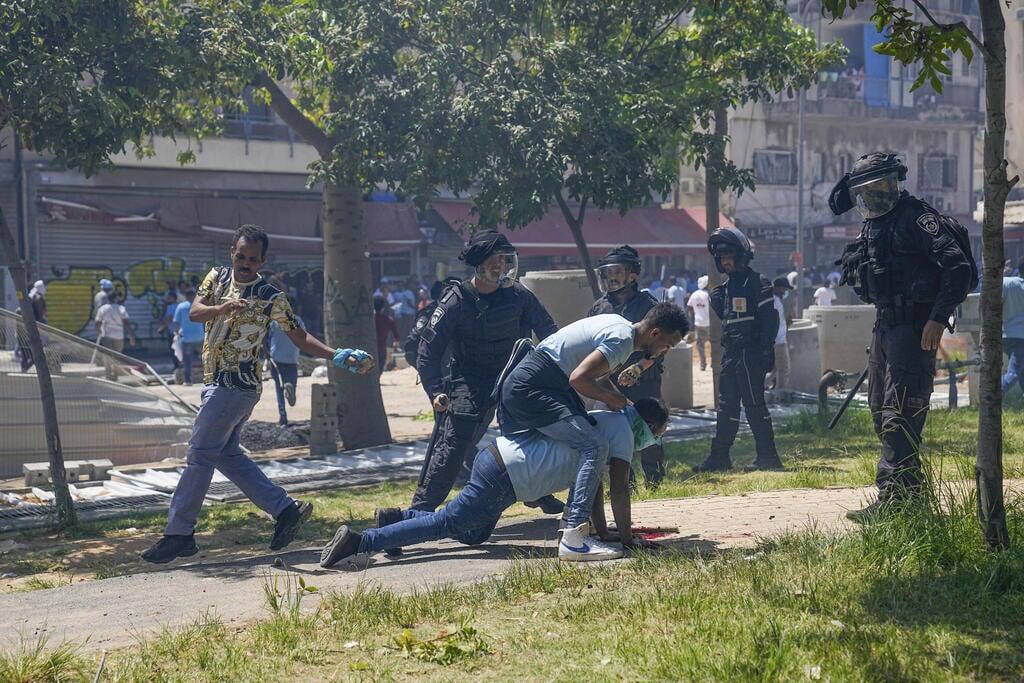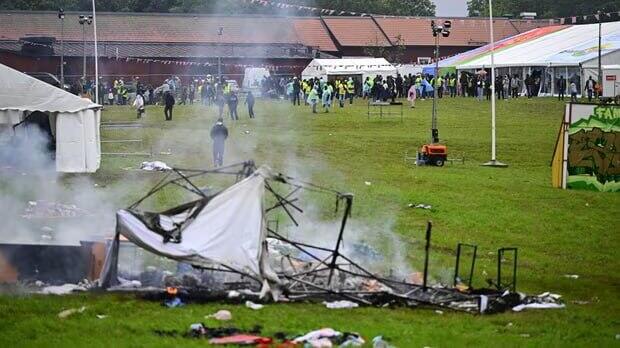Getting your Trinity Audio player ready...
Asylum seekers riot in Tel Aviv
(צילום: דוברות המשטרה, נדב אבס)
Violent protests erupted between hundreds of Eritrean asylum-seekers and police in Tel Aviv on Saturday during a protest against an event organized by the Eritrean Embassy.
More stories:
The Police were attempting to disperse the rioters using riot control measures and live ammunition, and after hours of turmoil, law enforcement announced that peace had been restored to the area, while no less than 39 rioters were arrested.
The police said some 30 officers were injured in the clashes, and protesters were shot by police firing live rounds after they felt "real danger to their lives." Police in riot gear and on horses tried to corral the protesters, who broke through barricades and hurled chunks of sidewalk, batteries and rocks at the force.
At least 135 individuals, including 15 in critical condition, were caught in the midst of chaos on the streets. Most of the wounded were brought to Souratsky Medical Center, as some of them suffered gunshot wounds while dozens more were taken to other area hospitals that declared a mass casualty event.
asylum seekers riot in Tel Aviv
Eritreans make up the majority of the more than 30,000 African asylum-seekers in Israel. They say they fled danger and persecution from a country known as the "North Korea of Africa" with forced lifetime military conscription in slavery-like conditions.
Violent protests have popped up all over the world as Eritrea, one of the world's most repressive countries, marks 30 years of independence with festivals held by Eritrea's diaspora across Europe and North America. Earlier this year, Eritrea called anti-government protesters marching against these events"asylum scum."
President Isaias Afwerki, 77, has led Eritrea since 1993, taking power after the country won independence from Ethiopia in a long guerrilla war. There have been no elections, there's no free media and exit visas are required. Many young people are forced into military service with no end date, human rights groups and United Nations experts say.
The nation in the Horn of Africa has one of the world's worst human rights records, and the asylum-seekers fear death if they were to return.
Eritrean riot in Tel Aviv
An advocacy group for asylum seekers in Israel said the local Eritrean community asked the police to prevent the embassy's event. "The police ignored their requests and now the the force fire live bullets at those who were forced to flee the cruel dictatorship in their country." The group added that Eritrean embassies around the world have been persecuting asylum seekers but in most places, the celebrations of independence were canceled.







